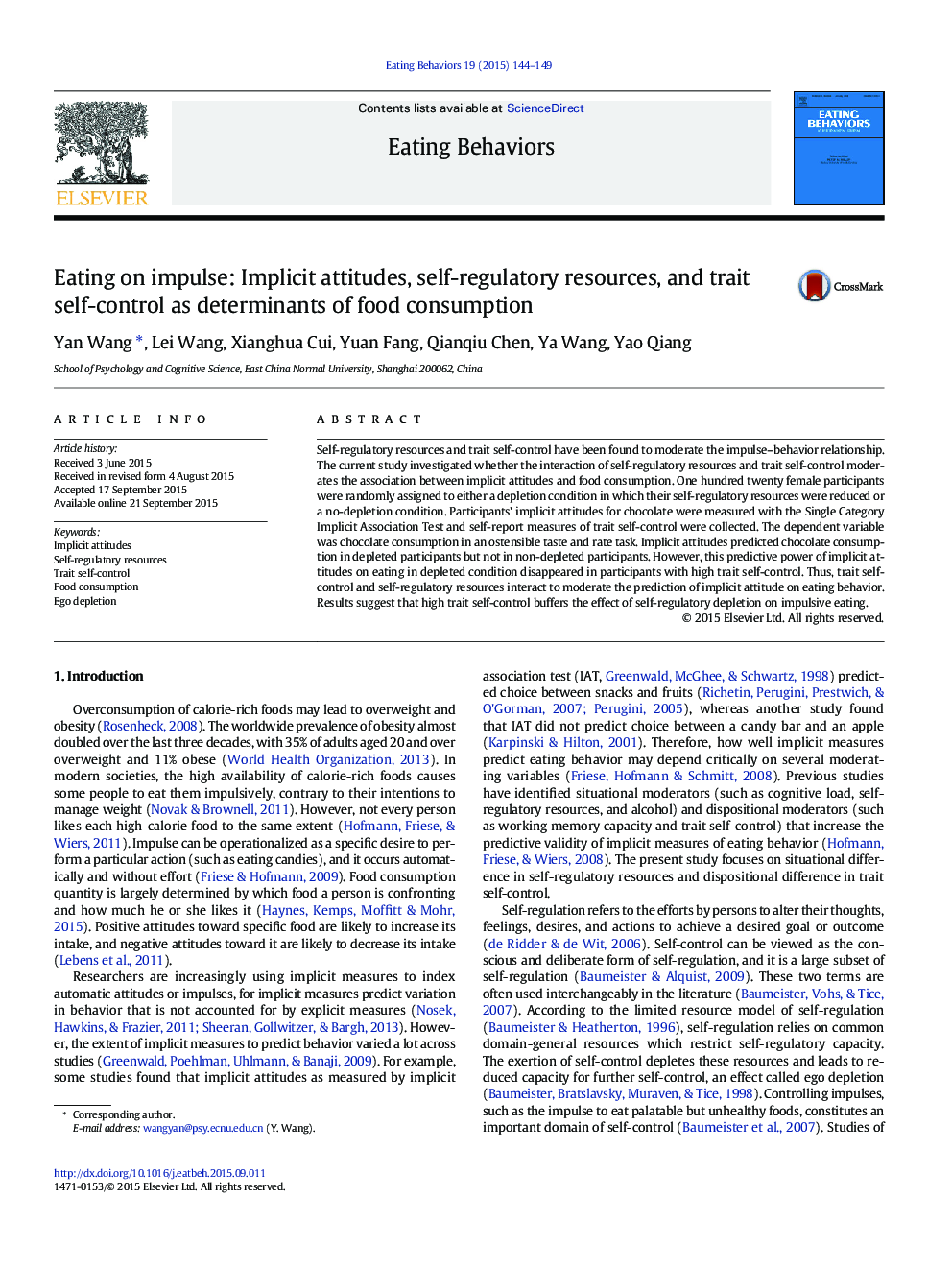| Article ID | Journal | Published Year | Pages | File Type |
|---|---|---|---|---|
| 906304 | Eating Behaviors | 2015 | 6 Pages |
•Influences of implicit attitudes, trait self-control and self-regulatory depletion on food consumption were examined.•Implicit attitudes predicted food consumption in the depletion condition but not in the no-depletion condition.•This effect disappeared for participants high in trait self-control.
Self-regulatory resources and trait self-control have been found to moderate the impulse–behavior relationship. The current study investigated whether the interaction of self-regulatory resources and trait self-control moderates the association between implicit attitudes and food consumption. One hundred twenty female participants were randomly assigned to either a depletion condition in which their self-regulatory resources were reduced or a no-depletion condition. Participants' implicit attitudes for chocolate were measured with the Single Category Implicit Association Test and self-report measures of trait self-control were collected. The dependent variable was chocolate consumption in an ostensible taste and rate task. Implicit attitudes predicted chocolate consumption in depleted participants but not in non-depleted participants. However, this predictive power of implicit attitudes on eating in depleted condition disappeared in participants with high trait self-control. Thus, trait self-control and self-regulatory resources interact to moderate the prediction of implicit attitude on eating behavior. Results suggest that high trait self-control buffers the effect of self-regulatory depletion on impulsive eating.
